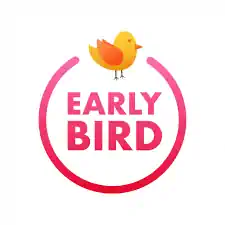MINISTRY OF EDUCATION-TSC INTERVIEW QUESTIONS AND ANSWERS
THE NATIONAL GOALS OF EDUCATION-TSC INTERVIEW QUESTIONS
HISTORY OF DEV’T OF EDUCATION
1. Name four education commissions since independence.
Ominde report, The Wanjigi Report (GoK, 1983); The Kamunge Report (GoK, 1985), The Mungai Report (GoK, 1995); The Ndegwa Report (GoK, 1991) and The Koech Report (GoK, 1999).
- What were the recommendations of the following: (a) Ominde commission (b) Kamunge commission (c) Koech commission?
- Ominde Report 1964 — it sought to reform colonial education. It proposed one that would foster unity and create human resources for national development.
- Gachathi Report 1976 — redefined policies and emphasised national unity and socio-economic and cultural aspirations of Kenya. Proposed a nine-year primary school curriculum.
- Mackay Report 1981 — removed A-Level education and established Moi University, 8-4-4 and Commission for Higher Education.
- Kamunge Report 1988 — focused on education financing, quality, and relevance. This led to cost-sharing and abolition of students allowances in tertiary institutions & universities.
- Koech Report 1999 — proposed Totally Integrated Quality Education and Training (TIQET) and the re-introduction of pre-university opportunities in post-secondary education. The Government did not adopt it, but some proposals have been adopted.
- Odhiambo Report 2011- its focus was how re-align the education sector to vision 2030 and the constitution of Kenya 2010. It recommended a curriculum reform that gives a structure of two cycles; Basic education cycle of 14 years (2-6-3-3) which is free and compulsory and higher education cycle (2 years of middle college or 3 of university).
- Kilemi Mwiria report 2014- recommended optimal class size of 45 students, deployment of teachers and head teachers outside their home counties to foster national integration, harmonize terms of employment for support staff with that of other civil servants
TSC INTERVIEW QUESTIONS ON FINANCIAL MANAGEMENT
1. What is the deadline for submission of the Books of account for auditing?
Four months from the end of each financial year of the government.
PROCUREMENT
- Name two members of a tender committee in a school.
- Under what circumstances can a school use direct procurement method.
- When there is only one person who can supply the goods, works or services being procured
- When there is no reasonable alternative or substitute for the goods, works or services
- There is an urgent need for the goods, works or services
- Because of the urgency, the other available methods of procurement are impractical
- The circumstance that gave rise to the urgency were not foreseeable and were not as a result of dilatory conduct on the part of the procuring entity
- What are the pitfalls in school procurement?
CURRENT AFFAIRS
What are the sustainable development goals?
The SDGs are a UN-sponsored effort to create a common set of development goals for all communities in every country, with a deadline for attainment of 2030.
What is vision 2030?
It’s a national long term development blue print that seeks to create a globally competitive and prosperous nation with a high-quality life by 2030, that aims to transform Kenya into a newly industrializing middle income country providing a high-quality life to all its citizens by 2030 in a clean secure environment.
What are the pillars of Vision 2030?
The vision is anchored on three pillars namely economic, social, and political.
Economic pillar– seeks to achieve an average economic growth rate of 10% p.a. and sustaining the same until 2030 in order to generate resources sufficient for MDGs and vision goals
Social pillar– aims to create a just, cohesive, and equitable social development in a clean and secure environment
Political pillar– seeks to realize an issue based, people-centred, result-oriented and accountable democratic system.
What are the benefits of Devolved management in education?
- Give two functions of the County Executive in charge of Education.
- Evaluate performance of education in the county and advise the governor
- Work in partnership with county education board in establishing efficiency and effective delivery of education services in the county
- Suggest budgetary allocation for education department
- Represent the governor at county level education meetings
- Promote private investing in education.
FUNCTIONS OF THE MINISTRY OF EDUCATION
- Standards assessment and supervision of educational institutions
- Schools administration programmes
- Registration of education and training institutions
- Curriculum development
- School equipment
- ECD, care and development
- Primary and secondary education, special education, continuing education,
- Recruitment and remuneration of teachers
- Capacity building of officers and institution managers
- Publishing curricula literature
- Research authorization, co-ordination, inventory and dissemination.
VISION OF MOE– quality education for development
MISSION– to provide, promote and co-ordinate lifelong education, training and research for sustainable development.
